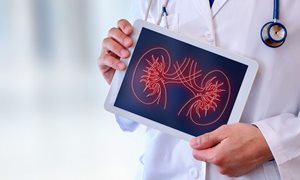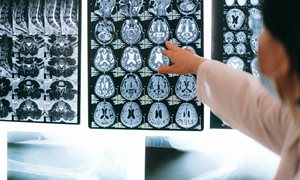21 November 2018
This EU report is prepared by the Disaster Risk Management Knowledge Centre (DRMKC) at the Joint Research Centre, the scientific service of the European Commission. His contribution will address the hazards and related vulnerability that mostly threat human lives in the EU, either by death, injury or other health damage.
Paul Scheepers was invited based on several publications on the use of human biological monitoring in response to chemical incidents. His publications supported the decision of the federal government in Belgium to initiate a human biomonitoring study in the aftermath of the train crash in Wetteren. The use of biomarkers in the disaster risk management setting is considered an important innovative methodology that will support human health risk assessment during the aftermath of a disaster.
This authorship will complement his involvement as rapid risk assessment expert on chemical threats for the Scientific Committee on Health, Environmental and Emerging Risks (SCHEER) of DG Health and Food Safety that is mandated by the European Commission to provide within a short time-frame (36 hours) public health risk assessment in case of cross-border chemical threats in the European Union.
 Paul Scheepers has been invited as contributing author to the flagship Report “Science for Disaster Risk Management 2020 - Acting today, Protecting Tomorrow”.
Paul Scheepers has been invited as contributing author to the flagship Report “Science for Disaster Risk Management 2020 - Acting today, Protecting Tomorrow”.
This EU report is prepared by the Disaster Risk Management Knowledge Centre (DRMKC) at the Joint Research Centre, the scientific service of the European Commission. His contribution will address the hazards and related vulnerability that mostly threat human lives in the EU, either by death, injury or other health damage.
Paul Scheepers was invited based on several publications on the use of human biological monitoring in response to chemical incidents. His publications supported the decision of the federal government in Belgium to initiate a human biomonitoring study in the aftermath of the train crash in Wetteren. The use of biomarkers in the disaster risk management setting is considered an important innovative methodology that will support human health risk assessment during the aftermath of a disaster.
This authorship will complement his involvement as rapid risk assessment expert on chemical threats for the Scientific Committee on Health, Environmental and Emerging Risks (SCHEER) of DG Health and Food Safety that is mandated by the European Commission to provide within a short time-frame (36 hours) public health risk assessment in case of cross-border chemical threats in the European Union.
Related news items

Researcher Marleen van Gelder cycles to Norway Action for research on preterm births
14 April 2022 A special action by colleague Marleen van Gelder, assistant professor in the Department of Health Evidence. In exactly two months' time, she will be getting on her bicycle to draw attention - and especially money - to research into premature births. go to page
Body composition is more important than BMI for renal cancer survival rates
11 January 2022 Body composition is important for survival rates in renal cell cancer. Research from the Radboudumc shows that low muscle quality and low organ fat are associated with poor survival. This involves different stages of renal cancer, ranging from stage I-III to stage IV. go to page
Mireille Broeders appointed member of the Dutch Health Council
16 November 2021 Mireille Broeders, professor of Personalized Cancer Screening, has been appointed as a member of the permanent Committee on Population Screening of the Dutch Health Council (Gezondheidsraad). go to page
Epidemiology and reporting characteristics of preclinical systematic reviews in PLoS Biology
7 June 2021 Kim Wever, researcher of the department of Health Evidence and an international team published the article 'Epidemiology and reporting characteristics of preclinical systematic reviews' in PLoS Biology. go to page
Millions of euros for study of laser treatment for glioblastoma
2 April 2021 A research group from Radboudumc and UMC Utrecht is to investigate laser treatment of a rare brain tumor, glioblastoma. 3.9 million euros has been made available for the research by Zorginstituut Nederland and ZonMw, under the auspices of the Subsidy Scheme for Promising Care. go to page
